1. Research on optimization methods of nonlinear models applied to energy problems.
2. Research and application of electromagnetic field simulation tools in electrical system design and operation problems
3. Systematic research methods applied to the problem of energy and electricity development planning.
4. Methods for fast and reliable calculation of working modes of complex power systems with ultra-high voltage lines.
5. Research on Advanced control and analysis methods that stabilize complex power systems with ultra-high voltage lines.
6. Algorithms for fast (online) analysis and control of the power system's modes in order to improve operational economic efficiency.
7. Sub-synchronic resonance and remedial measures
8. Application of information technology and new technical means in protection and automatic control of electrical systems. Improved fault locating accuracy on transmission lines. Wide area protection.
9. Management, monitoring and remote control of electrical energy systems (SCADA)
10. Research on efficient operation of the electricity market
11. Overvoltage phenomena and measures to prevent overvoltage in the power system.
12. Research and application of high-voltage electrical engineering in dust filtration and ore extraction
13. Optimizing the power supply network structure.
14. Problems on improving the reliability of the power system.
15. Research, evaluation and measures to improve power quality of power system
16. Research on the use of new and renewable energy forms in Vietnam. Planning and Design
17. the power system has renewable energy sources. The problem of connecting renewable energy sources.
18. Use efficiently and save energy. Power Demand Management (DSM).
19. Research on optimizing energy management in small power systems (Microgrid)
20. Research and application of smart grid (smartgrid)
21. Interdisciplinary research and application of new technologies in energy system operation management.
22. New generation network: Next-generation network service and content delivery network: Quality of Experience (QoE) for Multimedia, next-generation network architecture NGN; edge computing and cloud computing; network security; green network techniques to save energy; Technologies and applications of the Internet of Things: smart IoT devices, wireless sensor networks, AI and its application in agriculture, smart cities, e-government, public health, etc.
23. Radio communication: Including research orientations on mobile devices, advanced signal processing techniques in mobile communications such as OFDM/OFDMA, MIMO-OFDM; Massive MIMO; design and simulate mobile communication network in model form; Research and design underwater communication systems.
24. Multimedia: Multimedia content processing and analysis focuses on intelligent processing and analysis of multimedia and multi-source data including text, audio, images, video and time series. and multimedia information retrieval: This research direction aims to develop methods and techniques for query representation and processing, indexing, multimodal and intermodal search, and personalization. search, interface, and respond to users to provide efficient and intelligent multimedia data access. Multimedia systems and applications: Human-machine interaction, medical applications, security, document analysis, mobile applications, video and photo retrieval, virtual and augmented reality applications, management Smart traffic management
25. Aerospace Electronics: Global satellite positioning system: algorithms to improve accuracy in GPS, Galileo systems; satellite navigation signal receivers based on new technology; applications of satellite navigation systems: location-based services, geodetic mapping, etc.; electronic devices on board; control systems for unmanned aerial vehicles; communication in aerospace systems...
26. Circuit design and system integration: Training programs are built according to international standards. Broad industry orientation, providing foundation and core knowledge, focusing on research activities, creativity and adaptability of learners in an international environment. The Institute of Electronics and Telecommunications offers bachelor/engineering programs in the group of "Electrical Engineering, Electronics, Information Technology, Computer Science, Information Systems".
27. Optical and ultra-high frequency: Research, calculate and design nano-sized optical circuits applied in optical communication, active elements, nano-sized optical energy transmission devices; analysis and design of antennas new generation: multiband antenna, small wideband size and high radiation efficiency; analysis and design of radio transmission lines: analysis and design of transmission lines and modes of transmission suitable for information systems.
28. Biomedical engineering: Processing medical information; designing and manufacturing biomedical electronic devices applied in Vietnam; building and developing an information network system for medical applications; research applications that use AI to aid in disease diagnosis.
29. Signal and information processing: Signal processing in telecommunications, multimedia, in biomedicine such as: theory of nonlinear signal processing and applications in telecommunications and security; chaotic information; chaotic laser, chaotic circuit and symbol encoding; Neural networks and applications; image processing and its applications in medical, transportation, security, etc.
Author: Nguyễn Trung Dũng
Reader Comments
 Recruitment advertisement of Shimadzu Vietnam Co., Ltd.
Recruitment advertisement of Shimadzu Vietnam Co., Ltd.
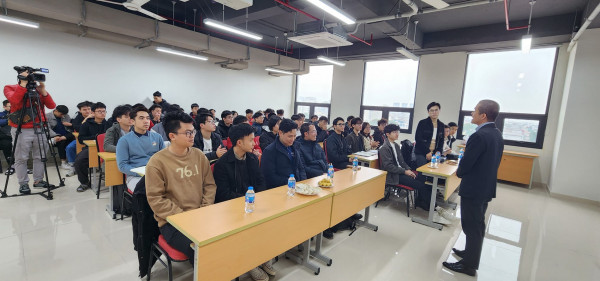 The Semiconductor Industry Is Rapidly Becoming a Popular Field of Study Wednesday
The Semiconductor Industry Is Rapidly Becoming a Popular Field of Study Wednesday
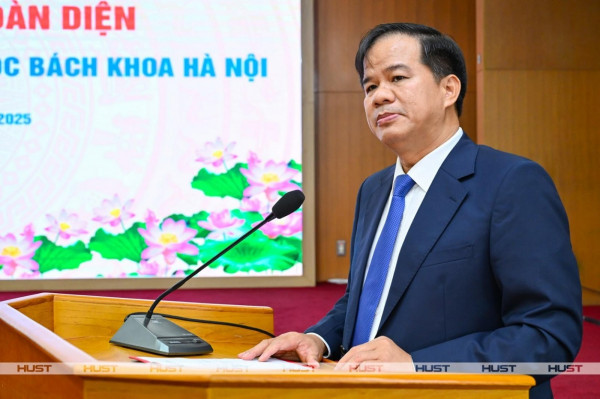 HUST Support Bach Mai Hospital with Data Processing
HUST Support Bach Mai Hospital with Data Processing
 INTRODUCTION TO THE BIOMEDICAL ENGINEERING PROGRAM
INTRODUCTION TO THE BIOMEDICAL ENGINEERING PROGRAM
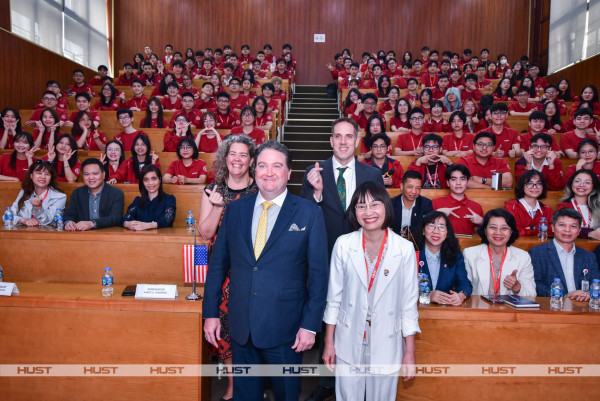 Mr. Marc E. Knapper, the U.S. Ambassador to Vietnam, visited and worked with Hanoi University of Science and Technology
Mr. Marc E. Knapper, the U.S. Ambassador to Vietnam, visited and worked with Hanoi University of Science and Technology
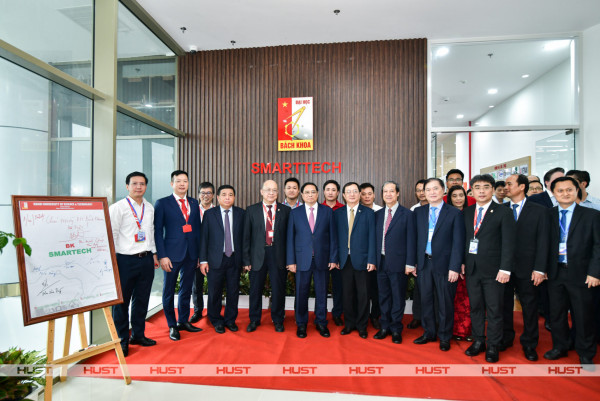 Prime Minister approved the Development Plan for Hanoi University of Science and Technology (HUST) to become one of the leading higher education institutions in Asia.
Prime Minister approved the Development Plan for Hanoi University of Science and Technology (HUST) to become one of the leading higher education institutions in Asia.
 Equipment Support Agreement Signed Between Faculty of Electrical Engineering and LS Electric Vietnam
Equipment Support Agreement Signed Between Faculty of Electrical Engineering and LS Electric Vietnam
 Grand Opening of the i3-Mechatronics Smart Automation Lab: A Leap Toward Industry 4.0
Grand Opening of the i3-Mechatronics Smart Automation Lab: A Leap Toward Industry 4.0
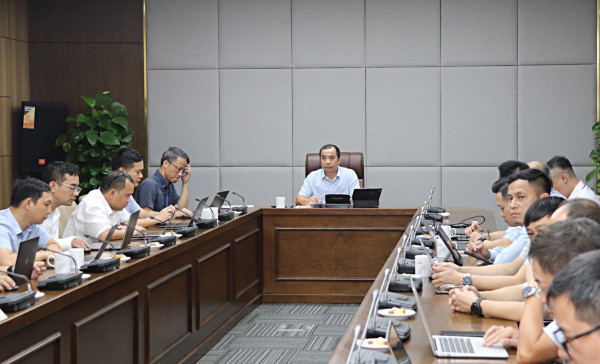 Powering the Future: Innovative S&T Models for High-Renewable Power Systems
Powering the Future: Innovative S&T Models for High-Renewable Power Systems